MAT 223: Real Analysis
Learning Track Courses

Set Theory - Introductory Abstract Algebra (Undergraduate Advanced)
This course lays the groundwork for understanding the structures that power modern mathematics.
We start with the basics of set theory???notation, logic, functions, and operations???and use it as a stepping stone into the world of abstract algebra. From there, we introduce groups, rings, and fields in a way that highlights both intuition and structure.
Clear, rigorous, and designed with first-time learners in mind.
Set Theory - Introductory Abstract Algebra (Undergraduate Advanced)
This course lays the groundwork for understanding the structures that power modern mathematics. We start with the basics of set theory???notation, logic, functions, and operations???and use it as a stepping stone into the world of abstract algebra. From there, we introduce groups, rings, and fields in a way that highlights both intuition and structure. Clear, rigorous, and designed with first-time learners in mind.
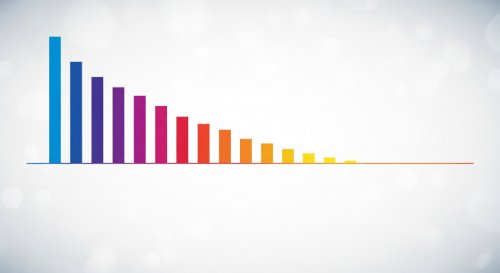
Convergence of Infinite Sequences and Series - Advanced Calculus (Undergraduate Advanced)
This course provides a complete toolkit for the study of infinite sequences and series. It begins with a rigorous treatment of the convergence of sequences and the algebra of limits. The course then covers the foundational theory of infinite series and provides a comprehensive study of all standard tests for convergence, culminating in an introduction to power series.
The concepts of convergence and infinite series are essential in physics, engineering, and computer science. They are used to solve differential equations, analyse signals with Fourier series, calculate probabilities, and determine the accuracy of numerical approximations. This is the mathematical machinery behind precision in scientific modelling.
By the end of this course, you will be able to determine if an infinite sequence converges and find its limit. You will also be able to apply the complete suite of convergence tests???including the Integral, Comparison, Ratio, Root, and Alternating Series tests???to determine if an infinite series converges, and find the radius and interval of convergence for any power series.
This course is for students who have completed a foundational calculus course. It is the standard curriculum for a second-semester calculus (Calculus II) module and is a direct prerequisite for the study of differential equations, complex analysis, and advanced physics.
Convergence of Infinite Sequences and Series - Advanced Calculus (Undergraduate Advanced)
This course provides a complete toolkit for the study of infinite sequences and series. It begins with a rigorous treatment of the convergence of sequences and the algebra of limits. The course then covers the foundational theory of infinite series and provides a comprehensive study of all standard tests for convergence, culminating in an introduction to power series. The concepts of convergence and infinite series are essential in physics, engineering, and computer science. They are used to solve differential equations, analyse signals with Fourier series, calculate probabilities, and determine the accuracy of numerical approximations. This is the mathematical machinery behind precision in scientific modelling. By the end of this course, you will be able to determine if an infinite sequence converges and find its limit. You will also be able to apply the complete suite of convergence tests???including the Integral, Comparison, Ratio, Root, and Alternating Series tests???to determine if an infinite series converges, and find the radius and interval of convergence for any power series. This course is for students who have completed a foundational calculus course. It is the standard curriculum for a second-semester calculus (Calculus II) module and is a direct prerequisite for the study of differential equations, complex analysis, and advanced physics.
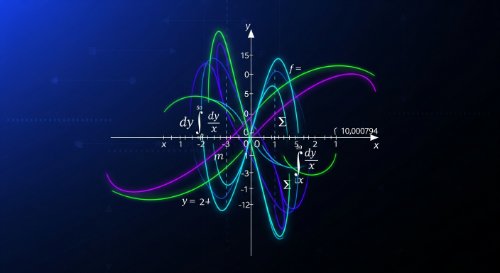
Functions and Their Graphs - Single-Variable Calculus (Undergraduate Foundation)
This course provides a rigorous foundation in the concept of functions, the building block of calculus. We begin with the real number system - rationals, irrationals, intervals, and infinity - before defining real-valued functions, their domains, and ranges. You will systematically study all key function families: polynomial, rational, algebraic, piecewise-defined, and transcendental, including exponential, logarithmic, trigonometric, and hyperbolic types.
A command of functions is essential for all technical and quantitative disciplines. These principles are directly applied in physics to model motion, in economics for supply-demand curves, in engineering for signal processing, and in computer science to analyse algorithm complexity. This course delivers the core mathematical tools required for effective modelling and problem-solving in these fields and beyond.
By the end of this course, you will be able to: calculate the domain and range of any given function; classify functions and identify their fundamental properties; analyse functions for key characteristics like symmetry (odd and even); and accurately construct graphs for a wide range of standard and piecewise-defined functions directly from their equations.
This course is designed for first-year undergraduates in science, technology, engineering, mathematics (STEM), and economics. It is also critical for any student preparing for advanced calculus or for professionals who require a solid mathematical base for roles in finance, data science, or technical research.
Functions and Their Graphs - Single-Variable Calculus (Undergraduate Foundation)
This course provides a rigorous foundation in the concept of functions, the building block of calculus. We begin with the real number system - rationals, irrationals, intervals, and infinity - before defining real-valued functions, their domains, and ranges. You will systematically study all key function families: polynomial, rational, algebraic, piecewise-defined, and transcendental, including exponential, logarithmic, trigonometric, and hyperbolic types. A command of functions is essential for all technical and quantitative disciplines. These principles are directly applied in physics to model motion, in economics for supply-demand curves, in engineering for signal processing, and in computer science to analyse algorithm complexity. This course delivers the core mathematical tools required for effective modelling and problem-solving in these fields and beyond. By the end of this course, you will be able to: calculate the domain and range of any given function; classify functions and identify their fundamental properties; analyse functions for key characteristics like symmetry (odd and even); and accurately construct graphs for a wide range of standard and piecewise-defined functions directly from their equations. This course is designed for first-year undergraduates in science, technology, engineering, mathematics (STEM), and economics. It is also critical for any student preparing for advanced calculus or for professionals who require a solid mathematical base for roles in finance, data science, or technical research.
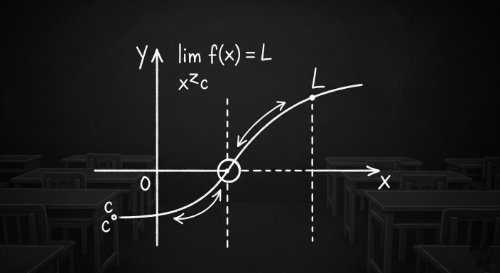
Limits of Functions - Single-Variable Calculus (Undergraduate Foundation)
This course provides a rigorous introduction to the concept of the limit, the theoretical bedrock upon which all of calculus is built. We will move from an intuitive understanding of what it means for a function to 'approach' a value to the algebraic techniques required for precise evaluation. The course covers the limit laws, methods for handling indeterminate forms, and the behavior of functions at infinity.
Understanding limits is non-negotiable for any serious study of calculus. The principles developed here are not merely abstract; they are the tools used to formally define the core concepts of calculus that are used to model the mechanics of change that govern engineering, physics, economics, and computer science.
By the end of this course, you will be able to: evaluate limits graphically, numerically, and algebraically; apply the Squeeze Theorem and L???H??pital???s Rule; analyse the end-behavior of functions; and identify vertical and horizontal asymptotes.
This course is designed for first-year undergraduates in STEM fields who are beginning their calculus sequence. It is an essential prerequisite for subsequent courses on continuity and differentiability and is also invaluable for any student or professional seeking to rebuild their mathematical foundation from first principles.
Limits of Functions - Single-Variable Calculus (Undergraduate Foundation)
This course provides a rigorous introduction to the concept of the limit, the theoretical bedrock upon which all of calculus is built. We will move from an intuitive understanding of what it means for a function to 'approach' a value to the algebraic techniques required for precise evaluation. The course covers the limit laws, methods for handling indeterminate forms, and the behavior of functions at infinity. Understanding limits is non-negotiable for any serious study of calculus. The principles developed here are not merely abstract; they are the tools used to formally define the core concepts of calculus that are used to model the mechanics of change that govern engineering, physics, economics, and computer science. By the end of this course, you will be able to: evaluate limits graphically, numerically, and algebraically; apply the Squeeze Theorem and L???H??pital???s Rule; analyse the end-behavior of functions; and identify vertical and horizontal asymptotes. This course is designed for first-year undergraduates in STEM fields who are beginning their calculus sequence. It is an essential prerequisite for subsequent courses on continuity and differentiability and is also invaluable for any student or professional seeking to rebuild their mathematical foundation from first principles.
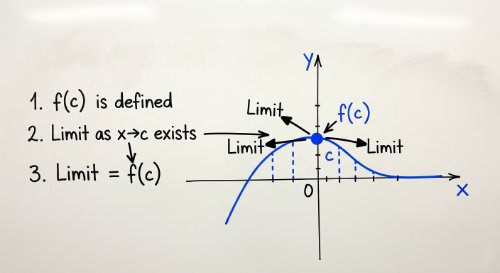
Continuity of Functions - Single-Variable Calculus (Undergraduate Foundation)
This course provides a focused and rigorous examination of continuity, a fundamental property of functions that underpins the whole of differential and integral calculus. We move from an intuitive understanding of "unbroken" graphs to the formal, limit-based definition of continuity. The course systematically explores the different types of discontinuities and the powerful theorems that apply only to continuous functions.
A command of continuity is essential for understanding why calculus works. This concept ensures that functions are predictable and well-behaved, a necessary condition for modeling real-world phenomena and for the validity of the major theorems of calculus. It is the bridge between the concept of a limit and the concept of a derivative, explaining why a function must be continuous to be differentiable.
By the end of this course, you will be able to use the three-part definition to test for continuity at a point, identify and classify removable, jump, and infinite discontinuities, and apply the Intermediate Value Theorem and the Extreme Value Theorem to analyse function behavior on a closed interval.
This course is designed for first-year undergraduates in science, technology, engineering, and mathematics who have completed a course on limits. It is a critical prerequisite for the study of differentiability and is essential for any student seeking a deep understanding of calculus theory.
Continuity of Functions - Single-Variable Calculus (Undergraduate Foundation)
This course provides a focused and rigorous examination of continuity, a fundamental property of functions that underpins the whole of differential and integral calculus. We move from an intuitive understanding of "unbroken" graphs to the formal, limit-based definition of continuity. The course systematically explores the different types of discontinuities and the powerful theorems that apply only to continuous functions. A command of continuity is essential for understanding why calculus works. This concept ensures that functions are predictable and well-behaved, a necessary condition for modeling real-world phenomena and for the validity of the major theorems of calculus. It is the bridge between the concept of a limit and the concept of a derivative, explaining why a function must be continuous to be differentiable. By the end of this course, you will be able to use the three-part definition to test for continuity at a point, identify and classify removable, jump, and infinite discontinuities, and apply the Intermediate Value Theorem and the Extreme Value Theorem to analyse function behavior on a closed interval. This course is designed for first-year undergraduates in science, technology, engineering, and mathematics who have completed a course on limits. It is a critical prerequisite for the study of differentiability and is essential for any student seeking a deep understanding of calculus theory.
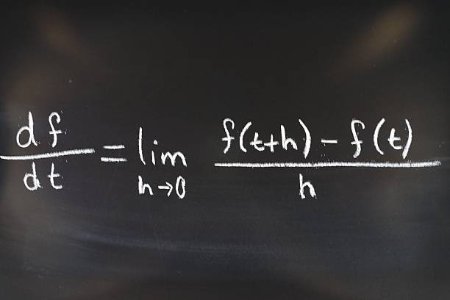
Differentiability of Functions - Single-Variable Calculus (Undergraduate Foundation)
This course provides a rigorous, theoretical introduction to differential calculus. We will move beyond computation to understand the fundamental nature of the derivative, beginning with its formal definition as the limit of a difference quotient. The curriculum is designed to build a deep conceptual understanding of what it means for a function to be differentiable and the profound consequences of this property.
The primary focus is on formal proofs and theoretical results. We will systematically derive the rules of differentiation, including the product, quotient, and chain rules, directly from first principles. This course emphasizes the "why" behind the mechanics of calculus, establishing the logical framework upon which all applications are built, including the cornerstone theorems of Rolle, the Mean Value Theorem, and Taylor's Theorem.
By the end of this course, you will be able to: explain the derivative from its limit definition; prove the relationship between differentiability and continuity; formally derive all major differentiation rules; and understand the theoretical significance of the Mean Value Theorem and Taylor's Theorem.
This course is designed for first-year undergraduates in mathematics, physics, and engineering who require a deep theoretical foundation for their studies. It is the ideal precursor to subsequent courses on differentiation techniques and applications, providing the essential logical underpinnings for those more practical subjects.
Differentiability of Functions - Single-Variable Calculus (Undergraduate Foundation)
This course provides a rigorous, theoretical introduction to differential calculus. We will move beyond computation to understand the fundamental nature of the derivative, beginning with its formal definition as the limit of a difference quotient. The curriculum is designed to build a deep conceptual understanding of what it means for a function to be differentiable and the profound consequences of this property. The primary focus is on formal proofs and theoretical results. We will systematically derive the rules of differentiation, including the product, quotient, and chain rules, directly from first principles. This course emphasizes the "why" behind the mechanics of calculus, establishing the logical framework upon which all applications are built, including the cornerstone theorems of Rolle, the Mean Value Theorem, and Taylor's Theorem. By the end of this course, you will be able to: explain the derivative from its limit definition; prove the relationship between differentiability and continuity; formally derive all major differentiation rules; and understand the theoretical significance of the Mean Value Theorem and Taylor's Theorem. This course is designed for first-year undergraduates in mathematics, physics, and engineering who require a deep theoretical foundation for their studies. It is the ideal precursor to subsequent courses on differentiation techniques and applications, providing the essential logical underpinnings for those more practical subjects.